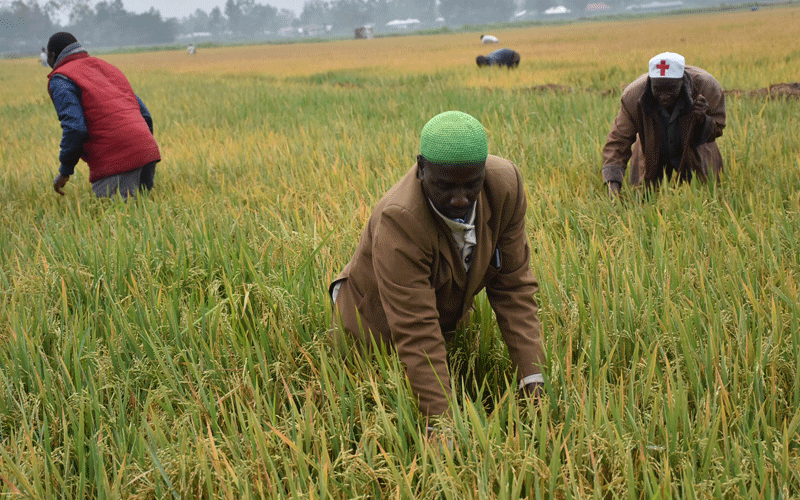Kenyan researchers develop disease resistant rice

Researchers at the International Rice Research Institute (IRRI) and their partners in Kenya and other rice producing regions have developed rice varieties that are resistant to bacterial leaf blight, one of the most devastating diseases in large parts of Africa and Asia.
The ‘Health Crops’ project aims to tame the disease, which has significant impacted small scale producers in low and middle-income countries.
Funded by the Bill & Melinda Gates Foundation, the project aims to deliver resistant varieties to smallholder farmers.
Researchers target to provide an effective and sustainable solution for yield losses, especially for small scale producers in developing countries.
The team has already successfully generated bacterial blight resistant rice lines and created a diagnostic toolbox that enables a rapid disease diagnosis of the newly occurring pathogenic bacterial strains.
Boost yields
“Bacterial blight is one of the most serious rice diseases in India and other parts of the world.
The yield losses in India vary from 15-20 per cent annually and can reach up to 40 per cent in case of severe infection in susceptible varieties,” observed Dr Ashok K Singh, a researcher from India, who is also involved in the project.
He said development of highly valuable resistant varieties will boost yields.
These findings enabled the consortium to introduce resistant rice varieties, which will help smallholder farmers worldwide in their fight against bacterial blight.
“Rice production and consumption in Sub-Saharan Africa is showing an unprecedented increase over the past decades.
Bacterial plant diseases are also expanding rapidly in the rice producing areas,” observed Dr Abdelbagi Ismail, the IRRI representative for Africa.
He said the development of resistant varieties, ahead of the evolution of new pathogenic strains, will lead to stable production and protect smallholder farmers from yield losses.












